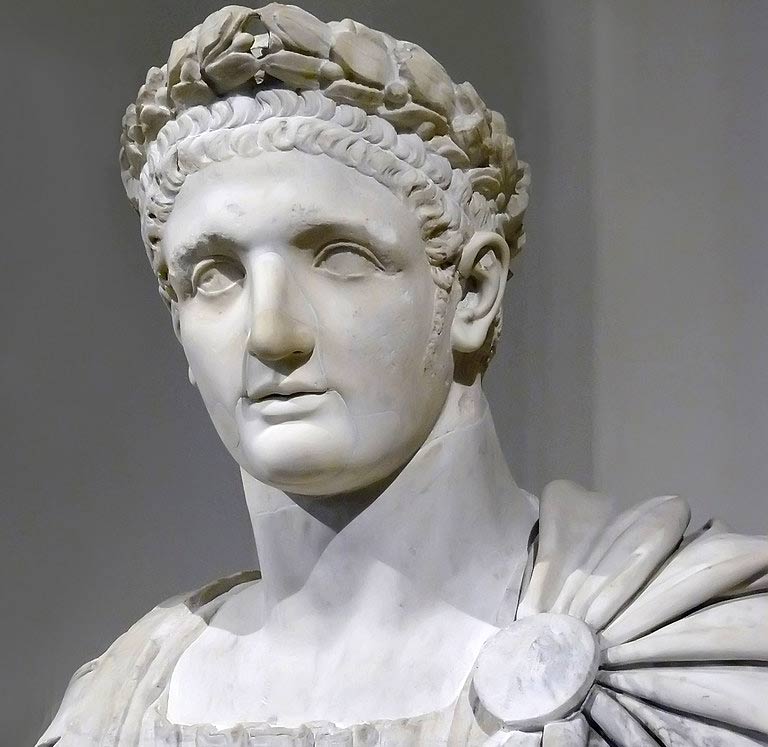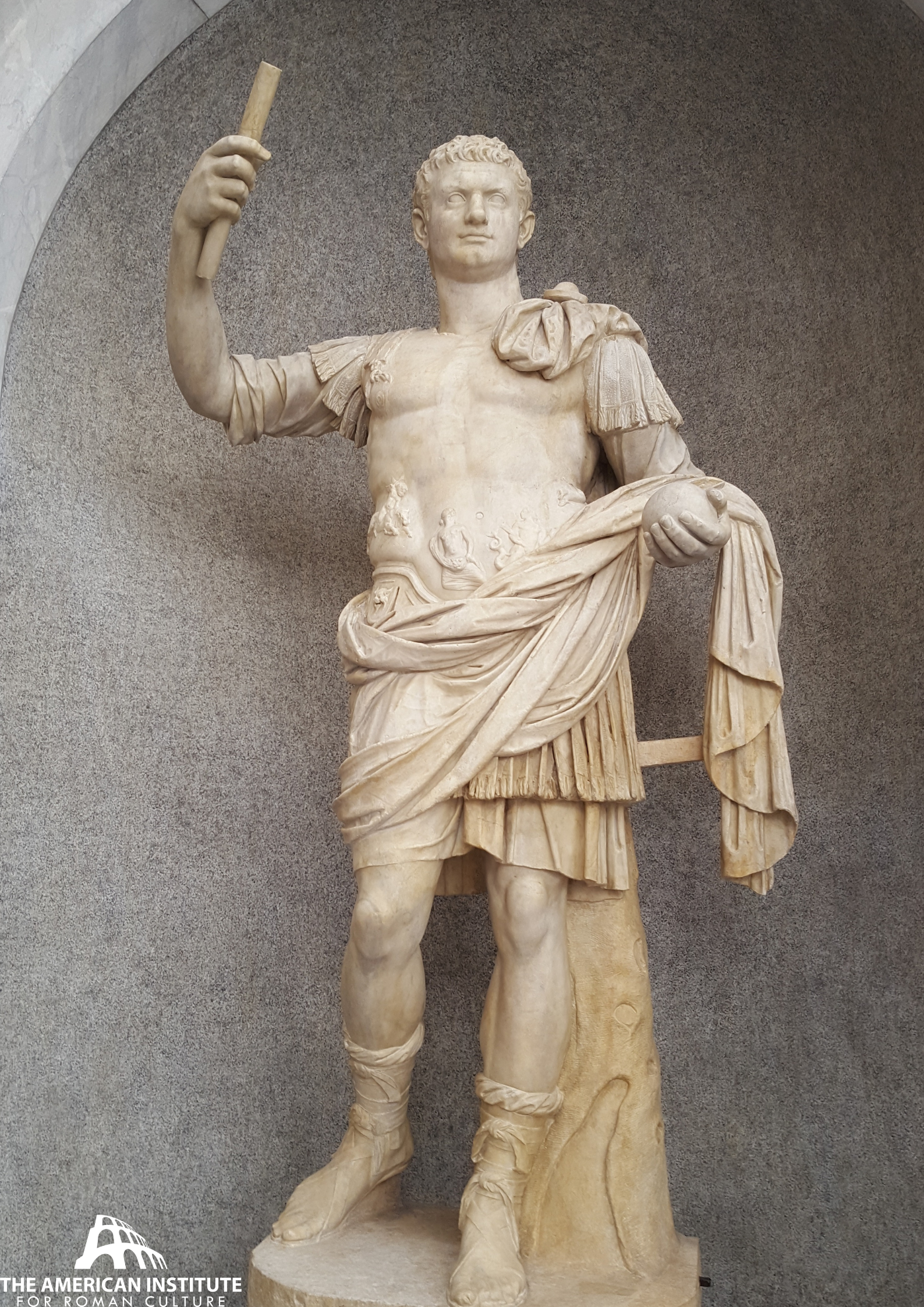Domitian, a pivotal figure in Roman history, ascended to the imperial throne in the year 81 AD, commencing a reign that would endure until 96 AD. Notably, he was the second son of Emperor Vespasian and the ultimate torchbearer of the illustrious Flavian Dynasty. Throughout his 15-year rule, Domitian orchestrated a multifaceted transformation within the Roman Empire, leaving an indelible mark on its economic, architectural, and strategic landscapes.
Roman Emperor Domitian Very Interesting Fun Cool Facts
Delve into the mosaic of Emperor Domitian’s life through a collection of these captivating facts that unravel the layers of his rule. From his ascent to power within the Flavian Dynasty to the peculiarities of his despotic reign, each fact unveils a facet of this complex historical figure. Whether exploring the depths of his political maneuvers or delving into the shadows of his personal life, the compilation serves as a captivating exploration of the intriguing world of Emperor Domitian.
1. Architectural Marvels and Economic Flourish
One of the crowning achievements during Domitian’s tenure was the culmination of the Colosseum, an iconic symbol of Roman grandeur that stood as a testament to his commitment to architectural prowess. Concurrently, he played a pivotal role in fostering economic growth, steering the Roman economy towards unprecedented prosperity. Under his stewardship, the empire experienced a flourishing period that underscored his keen interest in fortifying its financial foundations.
2. Tragic End and Swift Succession
The zenith of Domitian’s reign was tragically cut short when, in 96 AD, he met his demise at the hands of court officials. On the same fateful day, his trusted advisor Nerva stepped into the void as his rightful successor. However, this transition marked not only a shift in leadership but also the beginning of a concerted effort to erase Domitian from the annals of Roman memory.
3. Posthumous Vilification and Historical Reassessment
In the aftermath of Domitian’s demise, a systematic campaign was waged by the Senate to obliterate his memory. Influential figures such as Tacitus, Pliny the Younger, and Suetonius, belonging to the senatorial and equestrian classes, painted a portrait of Domitian as a harsh and paranoid ruler. Yet, in the currents of historical revisionism, modern scholars have sought to challenge this narrative. They present Domitian as a ruler whose strict demeanor was, in fact, a necessary instrument for effective governance. His cultural, economic, and political policies, far from being oppressive, are argued to have laid the groundwork for the peaceful era that characterized the subsequent century. A nuanced perspective emerges, acknowledging the complexity of Domitian’s legacy and the interplay of historical forces that shaped his image.
4. The Final Flavian: Domitian’s Reign
Domitian, the ultimate sovereign of the illustrious Flavian Dynasty, marked the concluding chapter of a remarkable imperial lineage. His ascension to power was preceded by an intriguing offer presented to Nerva by the Senate. This pivotal moment, captured in the annals of history, set the stage for Domitian’s reign as the last emperor of the Flavian Dynasty.
5. The Inauguration of the “Five Good Emperors”
The intriguing sequence of emperors, spanning from 98 to 196 AD, is indelibly etched in history as the “Five Good Emperors.” This nomenclature, popularized by Edward Gibbon’s seminal work, The History of the Decline and Fall of the Roman Empire, bestows upon Nerva the distinction of being the inaugural figure in this distinguished succession. Gibbon’s 18th-century masterpiece provided a narrative tapestry that intricately wove the threads of power transitions during this pivotal period.
6. Domitian’s Intriguing Persona
Delving into the character of Domitian reveals a complex tapestry intimately interwoven with dictatorship and the exercise of power. His proclivity for humiliating senators echoed through the corridors of time, immortalized in the scathing headlines penned by Suetonius in The Lives of the Caesars. This imperial disposition paints a vivid portrait of a ruler whose actions left an indelible mark on the socio-political landscape of ancient Rome.
7. A Banquet of Infamy
The year 96 AD marked the tragic end of Domitian’s rule—a reign characterized by paranoia and megalomania. The narrative takes a chilling turn as historical accounts unveil a ghastly banquet orchestrated by the emperor himself. This macabre event stands as a testament to Domitian’s propensity for disgrace, as he orchestrated a feast designed to humiliate his unsuspecting guests. The echoes of this malevolent gathering reverberate through the corridors of time, leaving an indelible mark on the legacy of the enigmatic emperor.
26. Domitian’s Dichotomy: Popularity and Senate’s Skepticism
Domitian, the enigmatic figure of ancient Rome, exhibited a peculiar duality in the eyes of his subjects. While he enjoyed considerable favor among the common people and the formidable Roman legions, his reign was cast in the shadow of skepticism by the discerning Roman Senate. The apparent contradiction in public perception set the stage for a nuanced analysis of Domitian’s rule, unraveling layers of complexity and intrigue.
27. Defensive Military Endeavors: Limes Germanicus Legacy
Delving into the military aspect of Domitian’s governance reveals a strategic inclination towards defensive campaigns. Foremost among his military endeavors was the construction of the Limes Germanicus, an extensive network comprising roads, forts, and watchtowers lining the Rhine River. This monumental project, undertaken with meticulous precision, stood as a bulwark against potential Germanic incursions. The enduring legacy of the Limes Germanicus resonated for centuries, solidifying the Empire’s territorial integrity and acting as an impenetrable barrier shielding it from the relentless pressure of Germanic tribes.
28. Veiled in Ambiguity: Domitian’s Isolation and Character Complexity
As the pages of history turn, Domitian’s character becomes a perplexing tapestry of ambiguity. The very traits that endeared him to the masses – populism and military prowess – were juxtaposed against a growing proclivity for isolation and solitude. The isolationist tendencies, perhaps rooted in a lonely upbringing, added layers of complexity to the emperor’s persona. With time, his remoteness from the political and social hubbub only deepened, fostering an air of mystery that cloaked the ruler in an enigmatic shroud. As he aged, his expressions of love for solitude only heightened, contributing to the enigma surrounding this multifaceted leader.
We hope you have enjoyed these Domitian facts.
More Interesting Articles
- 30 Ronald Reagan Interesting Fun Facts- 40th US President
- 34 Jackson Pollock American Artist Interesting Fun Facts
- 50 Salvador Dali Spanish Artist Interesting Fun Facts
- 39 Michelangelo Italian Artist Interesting Fun Important Facts
- 21 Karl Marx Thinker Interesting Fun Important Facts
- 23 John Locke Philosopher Interesting Important Fun Facts
- 17 Dmitri Mendeleev Facts – The Father of Periodic Table
- 18 Fun Facts about Pocahontas – Colonial Settlement Leader
- 19 King Mansa Musa Facts – The Richest Man Ever from Mali
- The 10 Great Leaders of the French Revolution
- 11 Ares God of War in Greek Mythology Interesting Facts
- 11 Kratos Greek Mythology God of War and Power Facts
- 10 Thoth Egyptian God with Ibis Head Interesting Facts
- 23 Robert Frost Interesting Facts – Bio | Achievements | Works
- 21 Hercules Greek God Facts – Profile | Achievements | Labors
- 10 Top Romantic Era Poets – Bio | Works | Facts | Contributions
- 27 Martin Luther King JR – Biography | Interesting Fun Facts
- 10 Great Russian Novelists – Bio | Works | Contributions | Facts
- 24 Interesting Facts about Julius Caesar – Biography | Contributions
- 26 John F. Kennedy JFK – Biography – Fun, Interesting Facts

